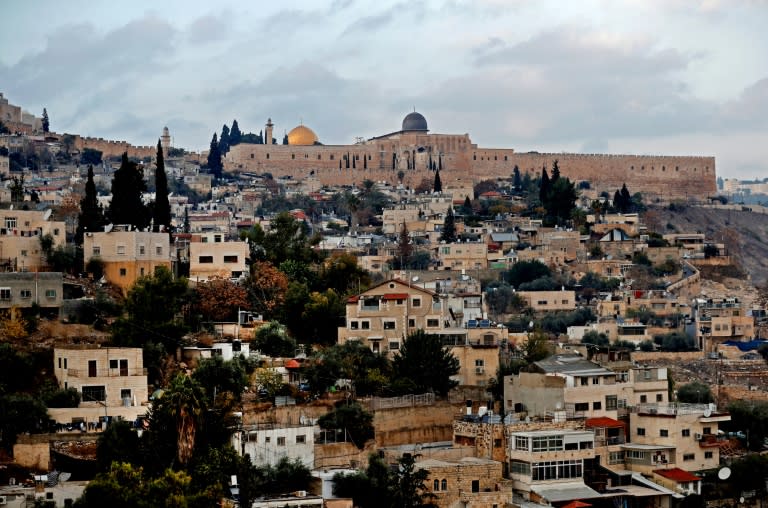
The ramparts of ochre stone stand out against the sky, framed by hilltop buildings and olive trees — but the view of Jerusalem’s Old City could soon include cable cars and pylons. Israel has approved a project to ferry visitors from western Jerusalem to near the Western Wall, the holiest place Jews are allowed to pray but part of one of the world’s most contentious sacred sites. The supporters of the 200 million shekel ($57 million) plan say it will ease the congestion and pollution.
But archaeologists, architects and city planners say the scheme, if completed, will be a blight on Jerusalem’s ancient heritage. The Western Wall is directly adjacent to the Al-Aqsa mosque, one of the holiest sites in Islam, but also located on the Temple Mount, the most sacred place in Judaism.
Lying in Israeli-annexed east Jerusalem, the site is at the heart of the Israeli-Palestinian conflict. The number of visitors to the Holy City has doubled in less than five years to around four million in 2019, according to the Israeli tourism ministry, which initiated the cable car project.
The 1.4 kilometer (0.8 mile) line “will change the face of Jerusalem, offering tourists and visitors easy and comfortable access to the Western Wall”, minister Yariv Levin said when it was approved last year.
But the project, set to open by 2021, faces a backlash. Jerusalem is not Disneyland, its landscape and heritage are not for sale, 70 Israeli architects, archaeologists and academics wrote in an open letter to the government before it was adopted.
Israel occupied the West Bank and Jerusalem’s predominantly Palestinian east, including the flashpoint holy sites of the Old City, during the 1967 Six Day War. It later annexed east Jerusalem in a move never recognized by the international community.
The Palestinians see east Jerusalem as the capital of their future state, but Israel has declared the whole city its undivided capital.
The cable car is to start at the preserved, but no longer functioning, Ottoman-era railway station in west Jerusalem, where a two-story glass terminal will host 3,000 passengers per hour.
A first stop will be on Mount Zion, a hill where Christians believe Jesus and his disciples met for the Last Supper and also revered by Jews as the burial place of biblical King David.
From there, the cable cars will pass above the east Jerusalem neighborhood of Silwan, a frequent flashpoint between Palestinian residents and Jewish settlers.
Abu Brahim said that usually the city build this kind of cable car over empty spaces, not over people’s heads,” from his dusty grocery store on the main street of Silwan, a short walk from the Old City walls.
In Silwan, the cable cars will pass over about 60 homes, at some points just 14 meters above the rooftops, said Fakhri Abu Diab, director of the local residents’ association.
After Silwan, passengers will disembark near the Western Wall, at a multistory tourist complex financed by the Ir David Foundation, which aims to increase the Jewish presence in east Jerusalem.
Israeli tour guide Michel Seban enthuses about the cable car, which he says will ease access to the densely packed Old City with its narrow cobbled lanes.
But for opponents of the project, the 15 steel pylons and the 72 cabins, each carrying 10 people, will scar a major historical site. Jerusalem’s Old City and its ramparts are listed as World Heritage sites by UN cultural agency UNESCO, while its outskirts are part of an Israeli national park. Another 30 leading international architects and academics have also asked the Israeli government to abandon the plan.
In a petition, they wrote that “a cable car is not appropriate for ancient cities with a skyline preserved for hundreds or thousands of years.” The Palestinian Authority has denounced the project as another attempt to increase Israeli presence in east Jerusalem.
The Palestinian point of view has found allies among Israeli NGOs like Emek Shaveh, which opposes the use of archaeology for political ends and is part of a group taking the case to the Supreme Court. Decision makers have become so obsessed with the Judaisation of the city, they forget to protect the Jerusalem they love so much,” said archaeologist Yonatan Mizrahi, its director. Those who can still recall what is so special and unique about Jerusalem are opposed” to the cable car.
Tags: Jerusalem, Jerusalem tourism, Palestinian